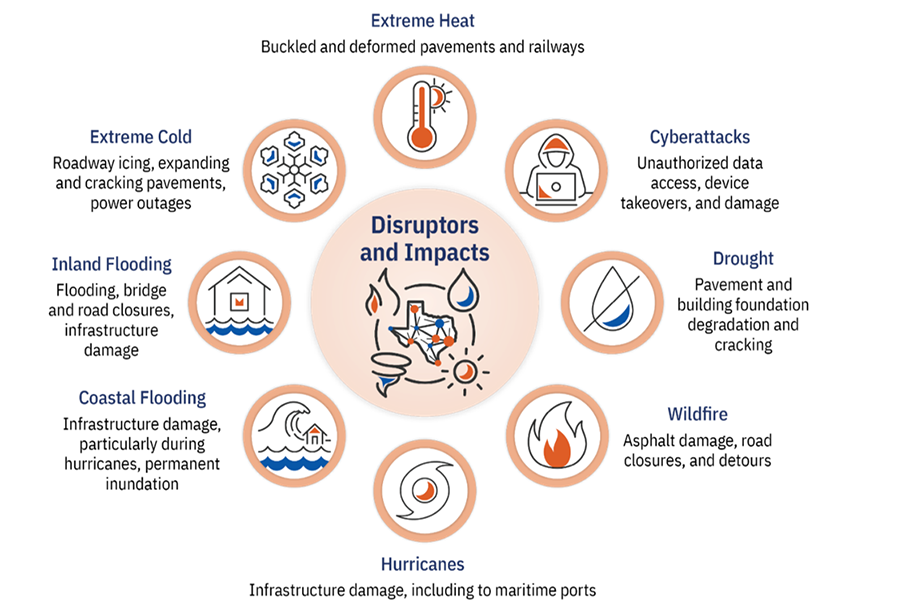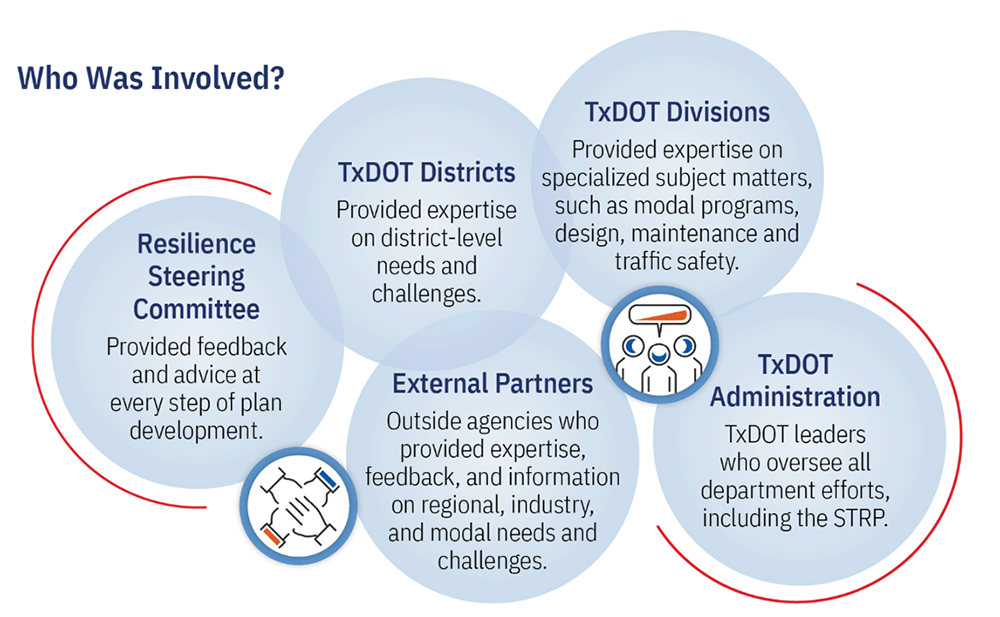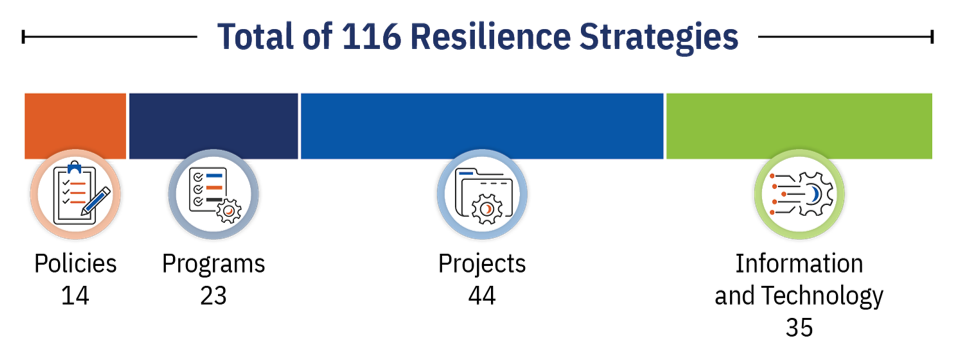Statewide Transportation Resilience Plan
Transportation planning

TxDOT initiated the Statewide Transportation Resilience Plan (STRP) to strengthen Texas’s multimodal transportation system against a range of extreme weather-related disruptors. The State faces increasing risks from events such as inland and coastal flooding, hurricanes, extreme heat and cold, as well as cyber security threats to our transportation systems. These events can damage transportation infrastructure and interfere with operations, resulting in cascading impacts on public safety and health, freight and supply chains and the Texas economy. The STRP was developed to address to these challenges and help build a more resilient transportation network for Texans. On January 5, 2026, FHWA approved the STRP to serve as TxDOT's Resilience Improvement Plan (RIP) consistent with 23 U.S.C. 176(e)(2).
STRP purpose
The STRP has established a planning framework TxDOT can use to assess resilience comprehensively across the statewide transportation network’s most critical components. Developed in coordination with TxDOT divisions, districts, and external stakeholders, the STRP:
- Identifies critical vulnerabilities and resilience strategies
- Guides projects and investments
- Proposes measures that can track system performance
What’s in the STRP?
The STRP assessed the Texas transportation system’s vulnerability to eight extreme weather-related disruptors, identified critical infrastructure, and developed strategies to address vulnerabilities and increase resilience. The STRP also estimated the costs of not taking action, including infrastructure damage, emergency response costs, economic losses, and recovery costs.


The STRP contains
Strategies
14 policy strategies
23 program strategies
44 project strategies
35 information and technology strategies
Key Performance Measures
Track progress and monitor system resilience
Resilience Projects
Eligible for Promoting Resilient Operations for Transformative, Efficient, and Cost-saving Transportation (PROTECT) Funding
Funding and Financing Opportunities
Federal opportunities and financing tools
Engagement
The perspectives and experiences of transportation stakeholders from across Texas shaped the STRP. The STRP team coordinated closely with TxDOT divisions, districts, advisory committees, and others throughout the development process.
The engagement process also ensured the STRP is closely aligned with other TxDOT planning efforts, including but not limited to the Statewide Long-Range Transportation Plan, the Texas Transportation Asset Management Plan, the Texas Freight Mobility Plan, the Unified Transportation Program, international trade and border planning. STRP findings and recommendations can serve as a resource to TxDOT divisions and districts for incorporating resilience into statewide, regional and local transportation planning and project development.

Internal stakeholders
Resilience Steering Committee
The Resilience Steering Committee (RSC) provided guidance and feedback on the STRP throughout the project. Consisting of representatives from TxDOT divisions and districts, the RSC shared important regional and issue-specific perspectives on resilience and provided connections and linkages to other TxDOT plans and programs.
The RSC met five times during STRP development on the following items:
- February 2023: Resilience goals and past challenges
- June 2023: Transportation assets and extreme weather-related disruptors
- November 2023: Vulnerability assessment results and economic costs
- March 2024: Draft strategies and performance indicators
- September 2024: Draft STRP and findings
External stakeholders
The STRP team held eight stakeholder workshops, attended by more than 200 individuals across 80+ partner agencies. In addition, the STRP team conducted over 40 interviews with transportation stakeholders across Texas, including (but not limited to):
- Metropolitan planning organizations
- Cities and counties
- Transit districts
- Railway, freight and shipping industries
- Ports and other state agencies
TxDOT Advisory Committees provided additional input on freight, international trade, and other focus areas.
STRP timeline
STRP development began in December 2022 and was finished in summer 2025.

Outcomes
The STRP includes 116 stakeholder-informed science-based strategies to address vulnerabilities. Implementing these strategies will strengthen the transportation system’s resilience and help TxDOT reduce costly damages from future extreme weather events.

Next steps
The STRP will serve as a framework for system-wide enhancements that will help make the transportation network more resilient to future extreme weather-related disruptors.